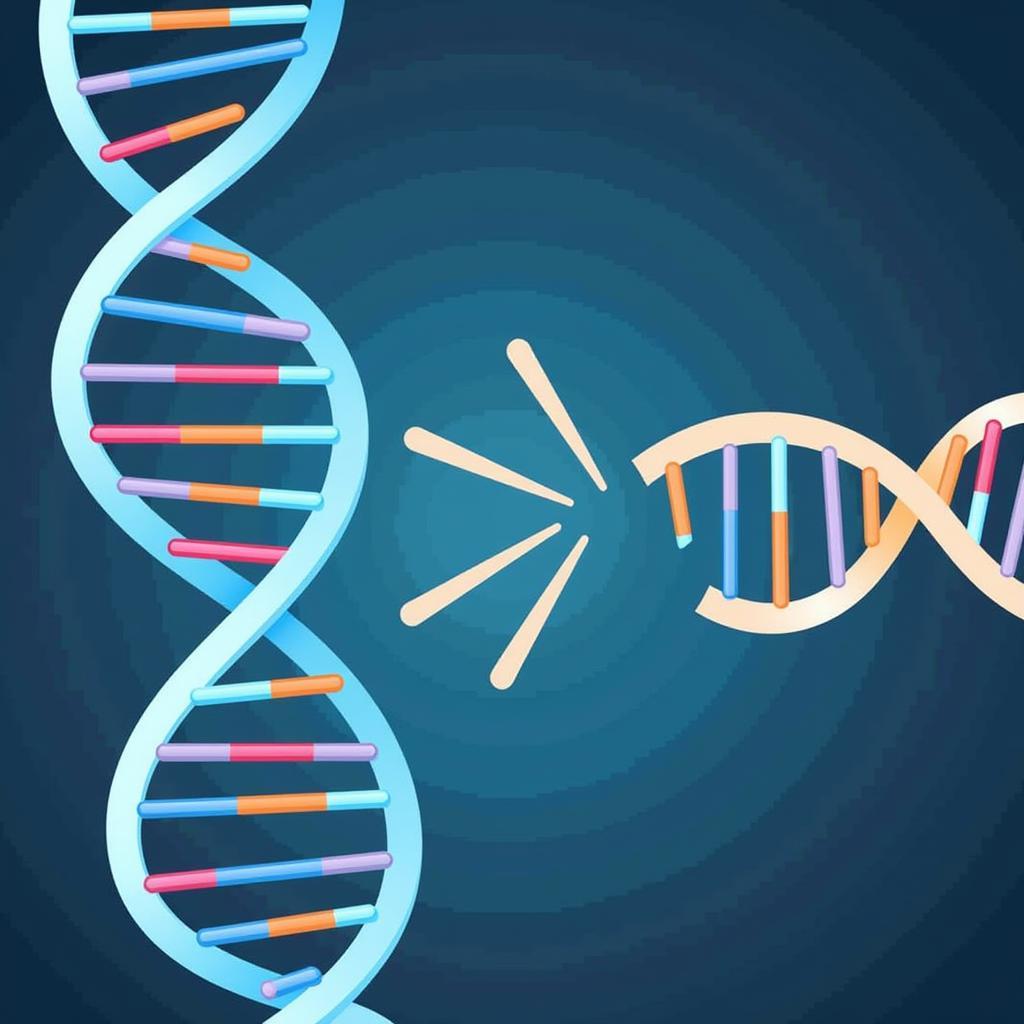The suffix “ase” at the end of a word often signifies a specific type of protein: an enzyme. These remarkable biological catalysts accelerate chemical reactions within living organisms, playing crucial roles in everything from digestion to DNA replication. But how can you identify these enzymatic powerhouses just by their names? Let’s delve into the fascinating world of “-ase” and uncover its significance.
The Enzymatic Power of “-ase”
Enzymes, denoted by the suffix “-ase,” are essential proteins that drive countless biochemical reactions necessary for life. They act as highly specific catalysts, speeding up reactions without being consumed in the process. This suffix is a key indicator of a word’s connection to the intricate world of biological processes. From breaking down food to building complex molecules, enzymes are the tireless workforce of our cells.
Identifying Enzymes by Name
The “-ase” suffix makes it relatively easy to spot enzymes in scientific literature and everyday conversations. For example, lactase, the enzyme responsible for breaking down lactose (the sugar in milk), clearly displays the telltale “-ase” ending. Similarly, amylase, found in saliva and the pancreas, breaks down starch into simpler sugars. ase means enzyme and understanding this simple convention can unlock a wealth of information about the biological world.
Beyond Digestion: The Diverse Roles of Enzymes
While enzymes are often associated with digestion, their functions extend far beyond the stomach. They are involved in DNA replication, cellular respiration, immune responses, and countless other processes. Without enzymes, life as we know it would be impossible. Consider DNA polymerase, the enzyme responsible for creating new copies of DNA during cell division. Its “-ase” suffix instantly reveals its enzymatic nature and its crucial role in maintaining genetic integrity.
 DNA Polymerase Replication
DNA Polymerase Replication
Exploring Specific Examples of “-ase” Words
The “-ase” suffix is found in a vast array of enzyme names, each reflecting the specific reaction it catalyzes. Proteases break down proteins, lipases break down lipids (fats), and nucleases break down nucleic acids. This consistent naming convention allows scientists to easily categorize and understand the functions of different enzymes. a word ending with ase means participating in complex biological pathways.
The Importance of Understanding “-ase”
Understanding the significance of the “-ase” suffix is vital for anyone interested in biology, medicine, or even nutrition. It provides a quick and easy way to identify enzymes and understand their roles in the complex web of life.
“The “-ase” suffix is a powerful tool for quickly deciphering the function of a biological molecule,” says Dr. Anya Sharma, a leading biochemist at the National Institute of Biological Sciences. “It immediately signifies an enzyme and its role in catalyzing a specific reaction.”
“-ase” and Everyday Life
While the “-ase” suffix might seem confined to the scientific realm, it actually pops up in everyday life more often than you might think. Consider the enzyme lactase, often added to dairy products to make them digestible for people with lactose intolerance. Understanding the “-ase” suffix helps us appreciate the crucial role enzymes play in our health and well-being. ase certified parts logo is also something to consider.
Conclusion: The Power of a Suffix
The “-ase” suffix at the end of a word means that the word refers to an enzyme. These remarkable proteins drive the biochemical reactions that sustain life, and understanding their significance unlocks a deeper understanding of the biological world around us. From digestion to DNA replication, enzymes are the unsung heroes of our cells, and their “-ase” ending provides a convenient way to identify and appreciate their vital roles.
FAQ
- What is the primary function of an enzyme ending in “-ase”? To catalyze biological reactions.
- Can you give an example of an enzyme important for digestion? Lactase, which breaks down lactose.
- Are all enzymes named with the “-ase” suffix? While the vast majority are, there are some exceptions.
- What is the significance of understanding the “-ase” suffix? It helps us understand the roles of enzymes in biological processes.
- Where can I find more information about specific enzymes? Scientific journals and online databases are great resources.
- Does “-ase” always signify a protein? Generally, yes. It specifically refers to enzymatic proteins.
- Why are enzymes crucial for life? They enable and regulate essential biochemical reactions in living organisms.
For any further support, please contact us at Phone Number: 0369020373, Email: [email protected] Or visit our address: Ngoc Lien Village, Hiep Hoa, Bac Giang, Vietnam. We have a 24/7 customer support team.

